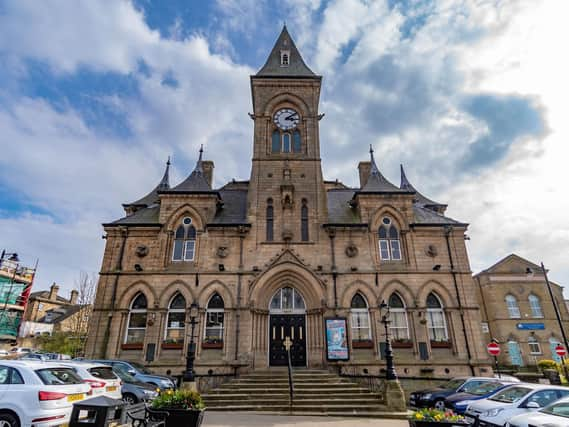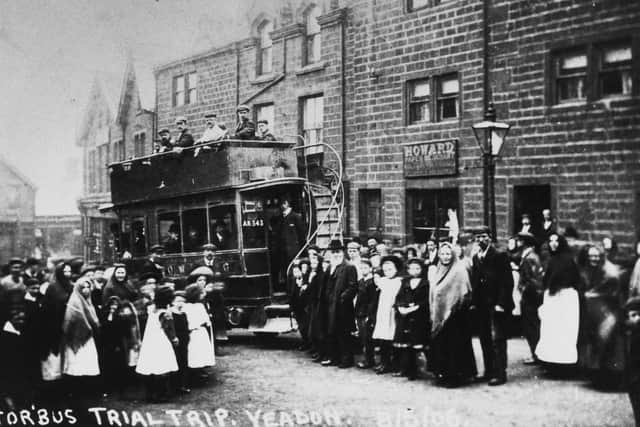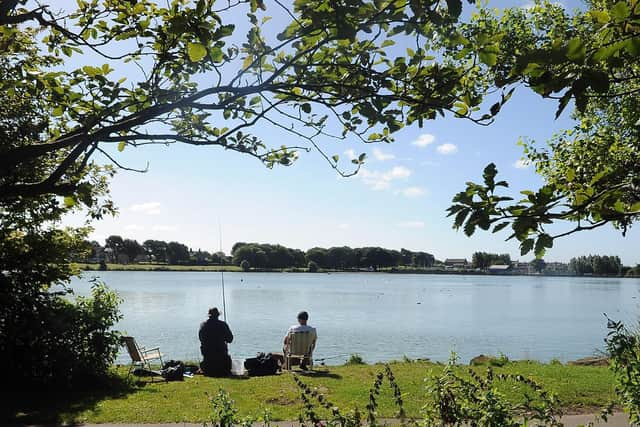Incredible diaries written by researcher's ancestor tell fascinating stories of life in 18th-century industrial West Riding


David Kitchen was the first generation of his family to move away from Yeadon, a small town on the outskirts of Leeds that was once a more isolated community with its own woollen industry.
Mr Kitchen, who now lives in Norfolk, knew his forebears had 'populated Yeadon' by virtue of their large families and had deep roots in the area, but has now been able to trace their lives back to the 1700s thanks to his discovery of his great-great-great-grandfather John Yeadon's personal diaries.
Advertisement
Hide AdAdvertisement
Hide AdJohn was born in 1764, and suffered early tragedy when his mother died when he was a small child. He went onto survive a bout of smallpox at the age of five and was raised on his grandmother's small farm until he married and had 14 children of his own.


In an era when literacy rates were low, John managed to receive an education at night school but was mostly self-taught, reading a fascinating array of books that Mr Kitchen believes would have been difficult to obtain in 18th-century Yeadon.
The journals were transcribed by archivist Barbara Telford after being donated to the Yorkshire Archaeological Society in the 1990s, and David has been unable to find out how they ended up surviving down the centuries after John's death in 1843.
He has now published them on an online blog and in book form on Amazon.
Advertisement
Hide AdAdvertisement
Hide Ad"I first saw a page from the diary in Yeadon Library, then I went to the YAS in Leeds to read the whole lot. It's a hard read - paper and ink were very expensive back then, and John filled every last millimetre with writing. I then spent years trawling through and discovered a common ancestor. The Yeadons populated Yeadon - John's son Joseph had 14 children too and there were around 40 grandchildren."


As well as local gossip, the pages are filled with John's observations on world events such as the French Revolution, the abolition of the slave trade and a key election in Harewood which swung the outcome of the parliamentary vote on the latter.
"There are so many anecdotes and personal stories, like the time he almost drowned bathing in Yeadon Tarn. He almost shot someone too. He was a religious obsessive, and he talks about a Methodism revival that gripped Yeadon with hysteria - there were services night and day."
John was never a wealthy man despite his education - he worked as a clothier and a bookseller, and eventually settled on getting his income from hand carving pegs for wool looms. Mechanisation in his later life meant work dried up, and he always feared his daughter Hannah, who had learning difficulties and epilepsy, ending up in the workhouse. A Methodist lay preacher, he could not afford a horse and would often walk 60 miles to a chapel, sometimes as far away as Keighley.
Advertisement
Hide AdAdvertisement
Hide AdHe suffered from a balance disorder throughout his life, but survived epidemics of typhoid and smallpox that killed large numbers of his neighbours and eventually died of a stroke at the age of 79 - after writing several 'final statements' in the journals believing the end was near.
"The whole journal is a massive document, so I've edited it a bit and left out the prayers and theology. Since publishing it, I've been contacted by descendants of John from all over the world - Australia, New Zealand. It's a story that needs to be heard."